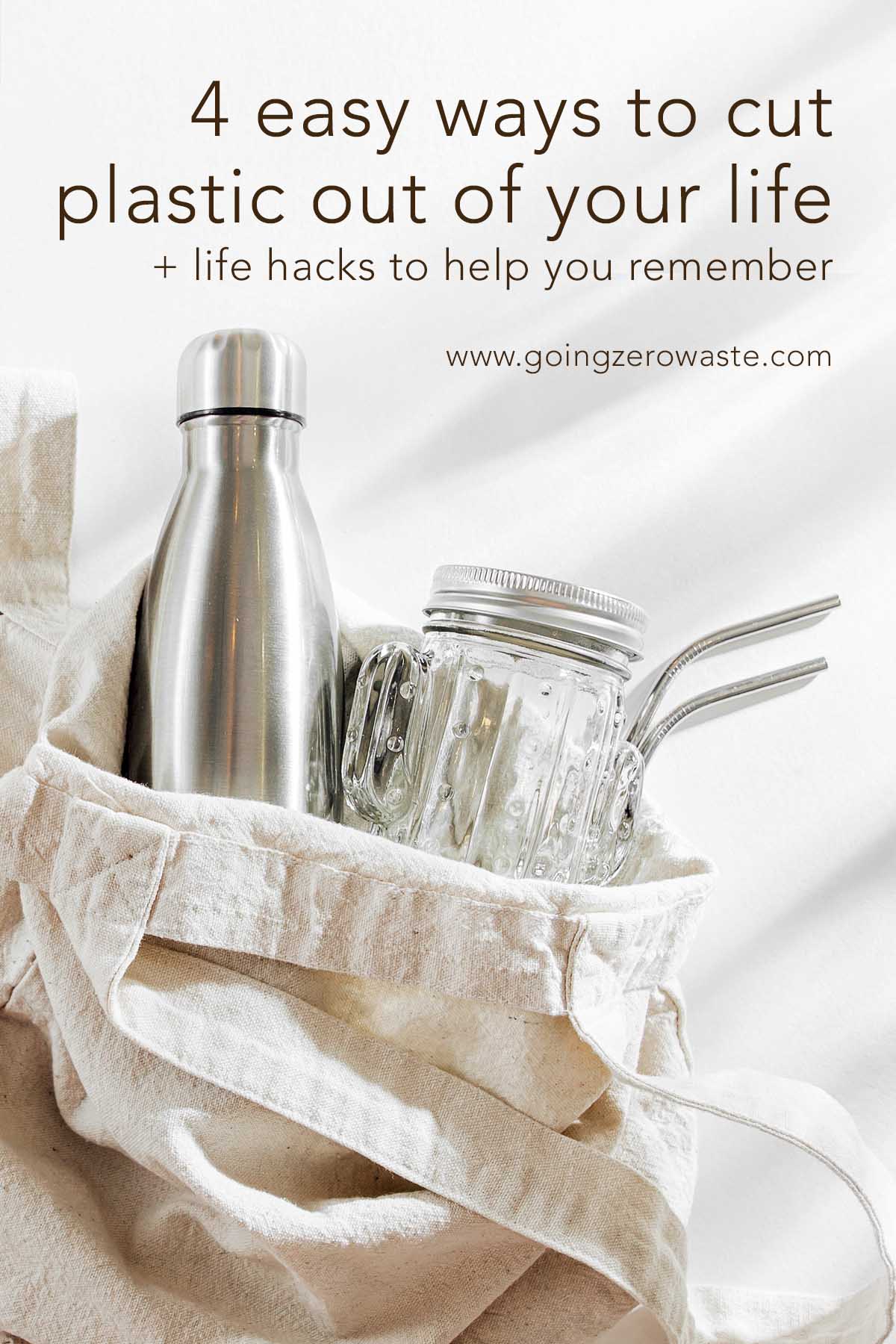Most beginner guides for going zero waste are full of simple swaps, but there’s so much more to zero waste living than replacing your household items.
Don’t get me wrong, I love swaps too like The Ultimate Guide to Zero Waste Swaps and 3 Easy Ways to Cut your Trash by 80%, but I think the tips below are the four most important tips I can give you for going zero waste.
They’re essentially the building block of zero waste, minimalism, and eco-friendly living. If you’re feeling a bit more advanced check out my post the Ultimate Step-By-Step Guide to Going Zero Waste which lays out the different areas you’ll cross through from beginner to advanced!
But, before we get to it... I'd like to inrtoduce you to this post's sponsor!
Y’all. You know I love Arbor Teas Arbor Teas and I’m going to hit all the high points with a bullet blitz! BULLET BLITZ.
- Only tea brand to offer loose leaf tea in backyard compostable packaging!
- They package in cellulose making the switch from canisters reduced the carbon footprint of their packages by 60% (AMAZING!)
- They package all of their teas in a solar powered building
- All of their shipments are offset carbon neutral
- They source their teas from organic, biodynamic, and regenerative farms.
- They have plastic free matcha. I repeat PLASTIC FREE MATCHA.
- They are just genuinely the nicest people on the face of the planet.
- And, their teas are just freaking amazing!
buy less:
The average American throws out 4.4lbs of trash a day, and that’s not even the half of it for everything that we throw away on average 70% is lost in the manufacturing. We only see 30% of the trash made!
THAT'S INSANE.
Buying less is the number one thing you can do to produce less trash.
Before buying anything make sure you really truly need it. I always ask myself a series of questions.
Do you really need it?
Is it really necessary?
Can something else make do?
Do you need to own it?
Zero waste is not just about the trash jar. It's also not solely about the landfill.
Trash is really just a physical representation of misallocated resources. I always say, very rarely do we have waste problems - we have creative thinking problems!
Have you heard of Earth Overshoot Day? It's a day on the calendar that marks when we’ve consumed all of the resources the earth can sustainably produce for the year, and it came at the beginning of August last year.
That’s BAD.
We're using 1.5 earth's worth of resources. It's completely unsustainable. So, the best thing we can do for the planet is to buy less.
buy well:
However, there are still purchases we need to make. If you don't live completely off grid/are self-sustaining, you'll need to make some purchases.
So when you do purchase something, really think about its full life-cycle. Think about where it came from and where it's going after you're through with it.
Here are a series of questions I like to ask myself when making a new purchase.
Ask a friend.
Can you find it second hand?
Can you find it local?
Who made it?
Is it made to last/ can it be repaired?
What happens when you’re done with it?
Always check the secondhand market first and if you're going to buy something new make sure you're taking everything into consideration.
And, whatever you do don't settle.
If I've learned anything in two years of zero waste living, it's that settling for something your not 100% happy with inevitably means you will be unhappy with it. Then you'll look for something else which is a waste of money and time.
So whatever you buy, just make sure that you love it.
find contentment:
We live in a world full of constant advertisements that tell us we’re not enough. They tell us in order to be happy or be loved we have to have this product. That their product will solve all of our problems. That it will make us happy or loved - which of course… we logically know isn’t true.
But, advertisers are really good at manipulating our subconscious so one of the most rebellious and radical things you can do is to simply find contentment with what you already have. One of the best ways to do that is to practice gratitude!
Things don't define you. They don't give you worth. Instead of buying things to make you look better or cooler, try spending time bettering yourself. Take a class, learn a new skill, focus on self-improvement.
So many studies have been done that people who opt for experiences instead of things are generally happier.
strike a balance:
And, like you've heard on this blog a hundred times before, it's not about perfection it's about making better choices.
Personal sustainability is super important check out the post I wrote about it - The Five Rules of Personal Sustainability. It's one of my favorite blog posts I've ever written.
The thing is, we live in a perfect zero waste society instead we live in a world where things are designed to be thrown away. Check out this post if you’re interested to learn more about the Circular Economy vs. a Linear Economy.
Things aren’t going to go our way 100% of the time and that’s OK. All we can do is the best we can where we are.
What would be some of your tips for someone starting a zero waste life?












